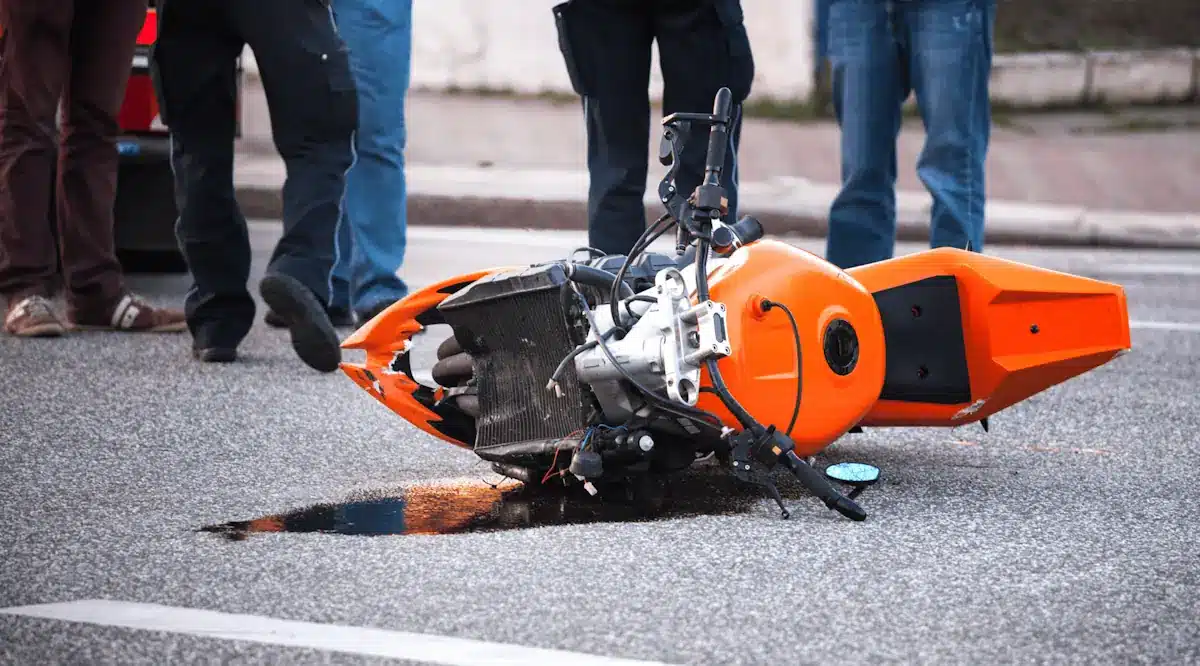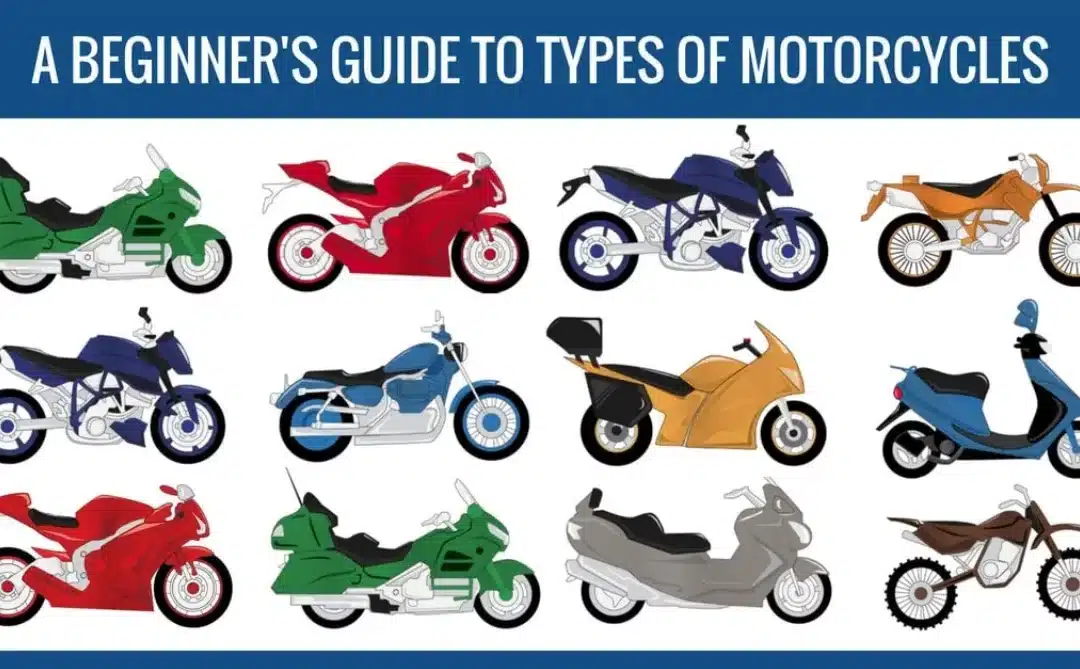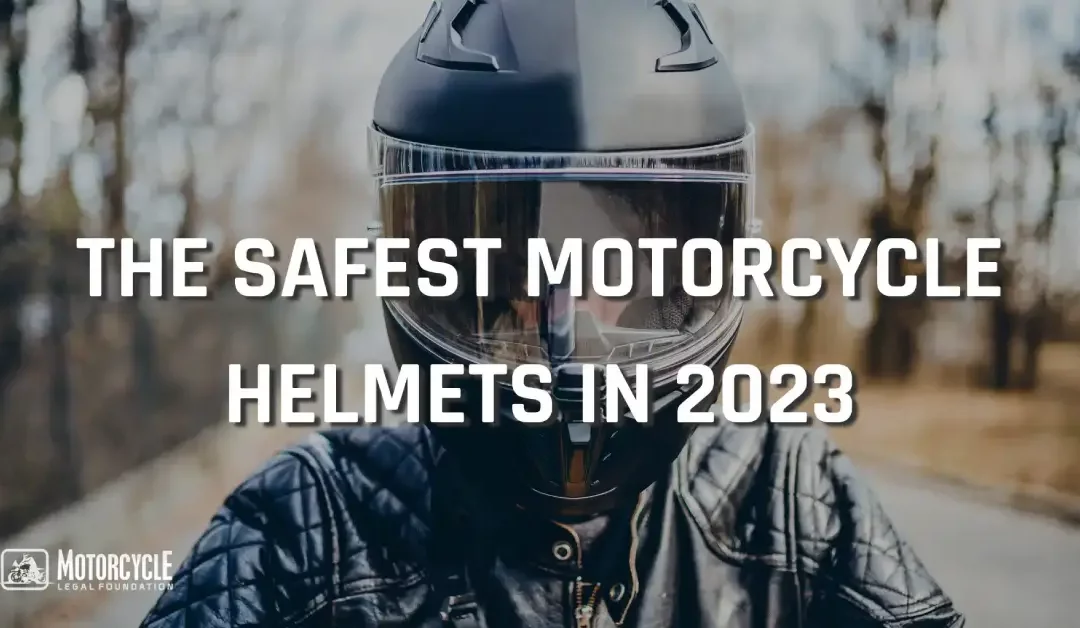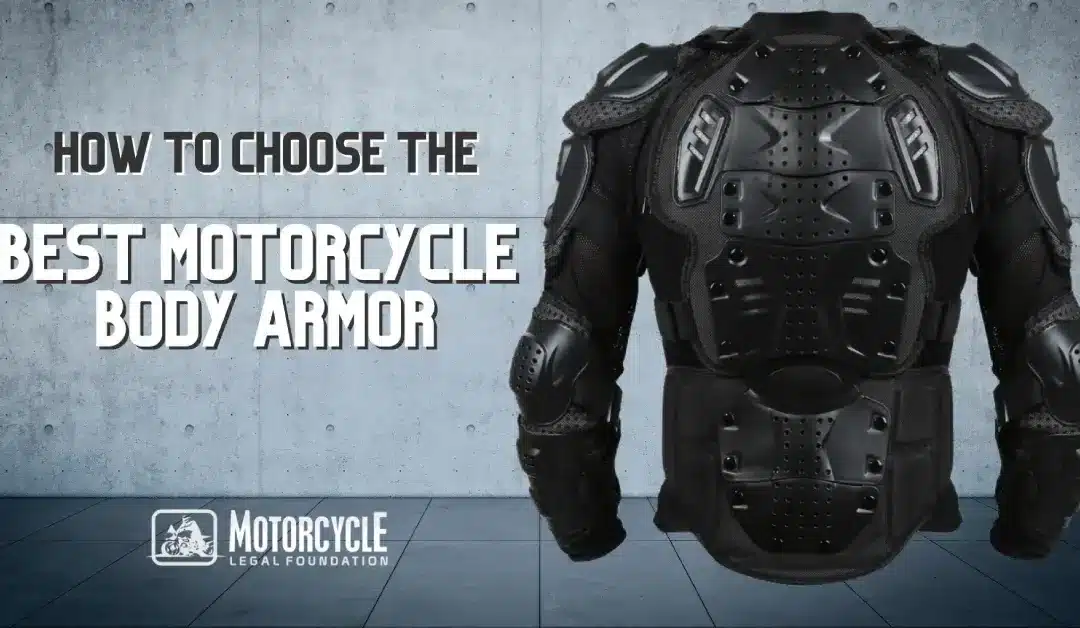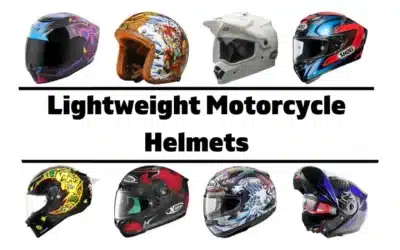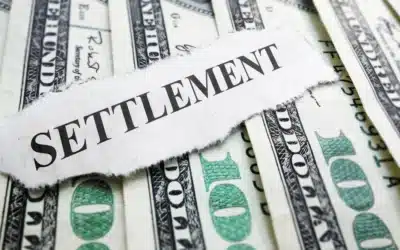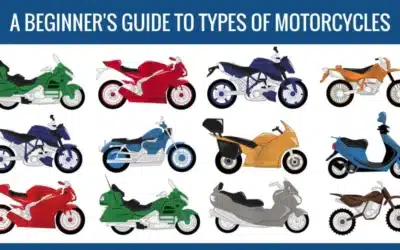One of the truest but hardest to explain sayings in motorcycling is, “It’s not if, but when, you go down.” We all know motorcycling can be dangerous. We have friends who don’t ride and don’t understand why we ride. Something I see frequently is those riders who have been involved in an accident and become afraid to return on a motorcycle again.
Many of the people I work with and many of my friends ride. Some use it for transportation, some as a hobby, but for most, it’s a part of their lifestyle. Why we ride isn’t as important as the fact that we ride. It doesn’t matter if you like the high gas mileage, the freedom of the road, or the thought of cross-country tours when you retire. Riding is riding.
However, being involved in an accident does affect your feelings about motorcycling. For some, it doesn’t change much, as It’s just a part of motorcycling. For others, it can completely drain your confidence and even put away the bike for good. When I hear someone say, “I was in an accident once,” I have to stop myself from asking for details about the situation. Will I bring up bad memories they’ve forgotten, or will it turn into a great dialogue about skills they wish they had more?
Dealing with the Loss of Confidence
Losing confidence in riding a motorcycle after an accident is perfectly normal. I’ve known riders that have put on thousands of miles every year, both on the street and on a closed racetrack, and they can tell stories of “little” things that would terrify me to have been in. How you feel about any accident, whether it’s falling over in the driveway, or a collision with a car on the freeway, varies case-by-case basis.
Being injured in an accident may affect how you heal mentally and physically. Some people may shake off a physical injury, allow their body to heal, and jump back on to ride again. For others, a slight injury can injure your body and cause a residual mental trigger. It’s up to you to take the time to heal your body and mind and decide when or whether it’s time to get back on for the next ride, if there’s even a next one.
Experiencing Loss of Memory & Feelings of Guilt
Frequently a motorcyclist can forget what happened during an accident. It may be a blank moment in time or could have been caused by a head injury in the accident. Thinking back on how it happened can cause frustration as they try to piece together the details of the accident. Sometimes people feel guilty, wondering if they self-inflicted the accident by doing something wrong. But, on the other hand, they were sometimes, having no recollection of the event can be a good thing, as it can lessen the chances of PTSD.
Experiencing PTSD
Post-Traumatic Stress Disorder (PTSD) is having stress and anxiety after an event. Although some may not associate it with motorcycling, PTSD does exist within the motorcycle community. Nearly everyone will experience some range of reactions after trauma, yet, most people recover from initial symptoms naturally. Symptoms usually begin within 3 months of the accident, but it varies from situation to situation, similar to the healing process.
Common symptoms of PTSD include :
- Nightmares – Nightmares can happen frequently and multiple times per night right after the accident.
- Flashbacks of the accident – You may see, hear, or smell something that causes you to relive the event, also referred to as a trigger. Watching or hearing the news, seeing an accident in person or the aftermath, or simply hearing a car backfire are examples of triggers that can affect you negatively and can frequently induce symptoms such as sweating and rapid heartbeats.
- Lack of interest – Motorcycle accidents can cause a lack of interest in motorcycles or anything motorcycle-related, and sometimes in things completely unrelated. There’s no guarantee that something seemingly unrelated to motorcycling won’t be affected. Suppose you were on a ride to get a milkshake as a reward. In that case, you may attribute milkshakes to the accident and not be interested in drinking one again for a while.
- Increased anxiety and stress – As your mind processes the information from the accident, it can stay in a heightened state of anxiety. You can stay irritable, tense, or feel uninterested in talking to people you associate with motorcycling.
- Hyperarousal (feeling on edge, stressed, or angry) – Arousal symptoms are usually constant (as opposed to triggers) that remind one of the traumatic events. It interrupts your daily routine and can cause difficulties in sleeping, eating, or concentrating on things.
If these symptoms persist, disrupt your work or home life, and continue for more than three months, consider seeking professional help to relieve the anxiety and residual feelings. They aren’t healthy for your long-term happiness, and you need extra help to get through the situation.
Read more about how to deal with PTSD after a motorcycle accident.
Learn From the Experience
An accident is an experience that you need to learn from. You will have to reflect on what happened and uncover how you got into the situation. You can process what the conditions were at that time. From your training, you can decide what you could have done differently to avoid the situation or how you could have reacted differently.
Think back to the visibility at that time. How good was it? Could you see for miles or just a hundred feet? What was the weather like? Rainy? Sunny? Straightforward, but after hours in the nighttime? What condition was your motorcycle in? Did it have good tires and a fresh oil change? Did you complete a T-CLOCS inspection before you left on the ride? Or was this a situation where you did everything right, and the fault lies in another motorist? Remember that you could have done everything right and still ended up in the same situation. What’s important is what you learned from it and how to bounce back from it.
Have You Been Involved In A Motorcycle Accident?
Our professional legal team screens submissions and assigns cases to some of the best motorcycle lawyers in the US.
What to Do Before You Start Your Next Ride
If you still have the urge to ride again, no matter how long it’s been since the accident, there are steps to take to ensure you’re completely ready.
Be Injury-Free
Being injury-free means both mentally and physically ready to ride. Consult with your doctors to ensure your injuries are fully healed before you hop on a bike again. Do NOT try to ride earlier than advised, as it can manifest hiccups in your healing injuries.
Aside from your physical health, check in with your mental health to see if you’re ready to ride. It may take more time to get that fear out of your system, or at least minimize it to a point where the desire to ride is larger than the trepidation of riding. Patience is key to healing, so take your time and don’t feel pressured to hop on sooner than you are ready.
Inspect Your Safety Gear and Motorcycle
A rider I spoke to after an accident said he didn’t know the condition of his motorcycle safety gear or motorcycle until a later inspection. At the time of the accident, your focus isn’t going to be on your safety gear and motorcycle. If you were following ATGATT correctly, your safety gear should have been what took the most damage. You may have taken it off after the accident and put it away for a later time (that’s what he did). The motorcycle may get a quick inspection at the time of the accident. Still, you may not realize the proper condition until you’re ready to look it over.
Your safety gear should have included a DOT-approved helmet, a jacket, motorcycle gloves, full-length pants, and good riding shoes. Did it protect you during the accident? If it didn’t, take that lesson as a calling to invest in better safety gear if you return to riding. If you had quality gear, is it in a good enough condition to use again, or should it be replaced with new gear?
How did your motorcycle fair from the accident? Did it suffer major or minor damage? If you’re unfamiliar with the signs to look for, consider taking it to a certified mechanic for a full inspection and then decide what needs to be replaced and the cost. If your motorcycle is hit in the accident, you may want to upgrade or replace the motorcycle altogether. If that’s the case, you can look at something new that may have better features like ABS brakes.
Enjoying the Thrill of Motorcycling Again
If the time comes that you’re ready to ride again, here are the steps we suggest to getting back out there safe and ready to go:
- Follow ATGATT – Whether you had great protective gear or you’ve now upgraded to great gear, it’s time to make it a priority. Full gear, all the time. No questions.
- Practice makes perfect – It’ll take time for you to be mentally, emotionally, and physically prepared to head onto the road again. Take your time to feel comfortable on your motorcycle, and don’t rush it. Think about starting in a controlled environment away from traffic to get acclimated to the feeling of riding again. Practice the bare basics, such as turning, braking, etc. If you want to, refresh your skills by taking another motorcycle course or reading up on motorcycle guides.
- Take it easy – Go on a short, easy ride on a road that you’re familiar with. Don’t go on the highways, but ride on surface streets and cruise just to ease back into the thrill of it. This will help you with gaining back your confidence. Ride during nice weather and not during rainy days or inclement weather. Try to avoid the crime scene as it can often reinforce that fear and can act as a trigger for PTSD.
- Don’t go alone – Having a partner or buddy to ride with you can make you feel more secure after a crash. Do you have someone you constantly ride with that makes you feel safe? If so, have them help you get acclimated to riding again. As a friend or partner, they’re only there to support you and not judge you.
- Be mindful of your ego – Don’t get overconfident just because you’ve been riding for an extended period. You want to overcome your fear of riding sooner rather than late, but you can overlook things on the road by not listening to your gut feeling. Don’t put yourself at more significant risk for an accident because you want to continue with business as usual.
Accidents Happen
They happen in motorcycling and life in general. How we move past them and continue is an individual choice. Losing a little confidence is normal, and we need to remember the signs of PTSD from the event. If you cannot move past the event after a few months, it’s best to talk to someone about how you feel about the issue. In motorcycling, fear and trepidation can cause us to react poorly to changing conditions. We must move through our feelings and take the necessary steps to get back to motorcycling with a healthy mind and body. Ease into it with the proper safety gear and support when it’s that time. And choose not to rejoin motorcycling. You can reflect on the fun memories you cultivated while doing something you love. Good luck, and stay safe!

